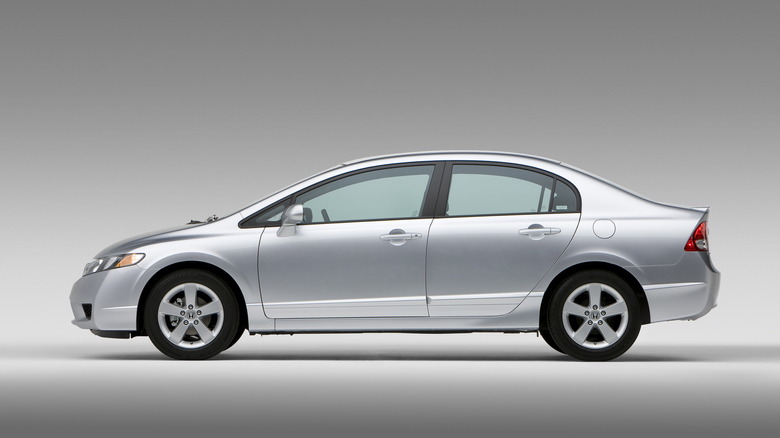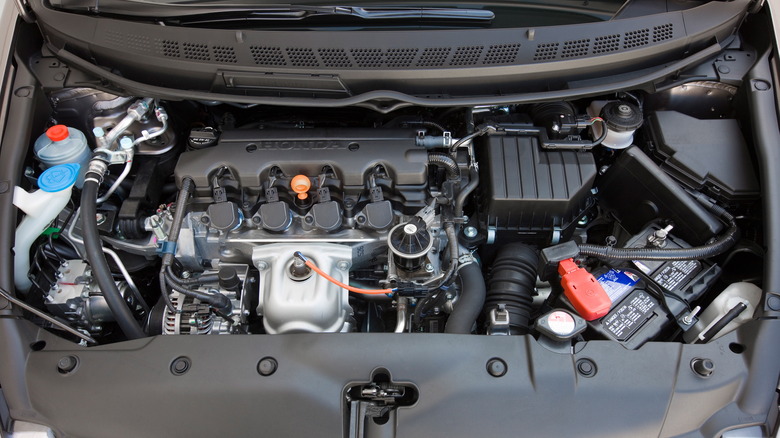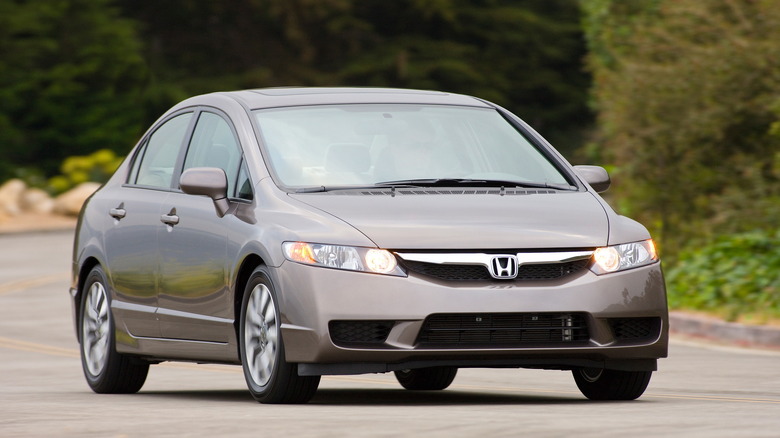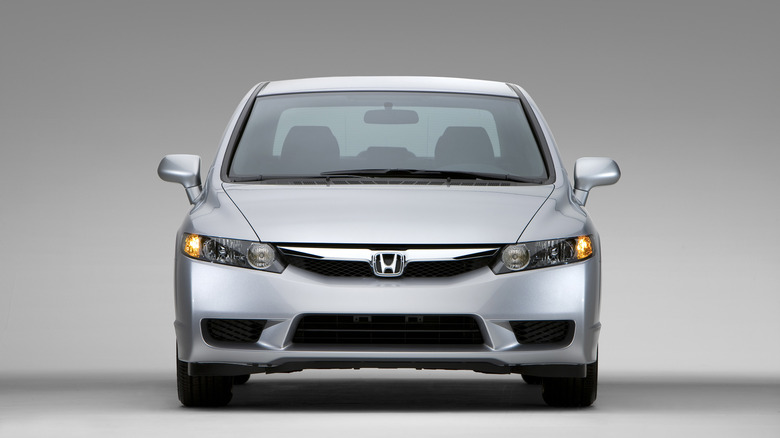2009 Honda Civic: Common Problems (And The Potential Cost Of Repairs)
Hondas, no matter what the model, are generally great vehicles, and the brand itself has built up a reputation over the decades as one of the most reliable marques on the market. One of the most popular Hondas in both a historical and sales sense, the Honda Civic, is generally seen as a safe choice no matter what model year, going as far back as the 1970s. But just because the vehicle is well built and reliable for the most part, it doesn't mean that every Civic is without problems you need to keep an eye on.
For example, the 2009 Honda Civic was clearly a popular car as Honda sold 259,722 of them in 2009, according to Honda's sales records. It came with a number of engine choices and was available as a coupe or sedan. The base model was equipped with a 1.8-liter four-cylinder that generated 140 horsepower. The hybrid model's 1.3-liter engine put out 110 horsepower. Lastly, the hotter Honda Civic Si generated 197 horsepower from its beefed up 2.0-liter engine. As it was the most popular model sold, most of the problems with the '09 Civic are associated with the base engine-equipped Civics.
Coolant leaks
One major failure to note is the that a number of 2006 to 2009 Honda Civics were plagued with engine coolant leak problems stemming from issues within the engine block. At the outset of the issue, Honda offered free fixes comprising of an entirely new engine block for affected cars. According to Consumer Reports, Honda prolonged the warranty period to 10 years. Given that it's 2024, the warranty likely won't still be honored. If you're looking to buy a Civic made within those years, take careful note of the service records. If it was the recipient of a new engine block, you don't have anything to worry about in that department, if not, you might want to dig deeper or consider something else.
The coolant leak was only found in the base model Civics with a 1.8-liter engine, meaning that hybrid drivetrain powered models and the sportier Civic Si were spared, as both Civics use a different engine block. As for fixing the coolant leak, it's certainly doable if you don't value your time, effort, or wallet. But if you must, a new engine block from a Honda parts dealer will set you back around $1,900 depending on whether or not the local Honda dealer has one in stock. However, if you happen to find a nice engine in a junkyard, it will likely be cheaper. This will be locale-dependent.
Paint and comfort
2009 Civics were part of the eighth generation of Civic, and as such the paint may become a source of pain for perspective owners. If you are looking to buy a Civic in 2024, the paint and protective clear coat has likely already started peeling. This, in the long run, can lead to premature rusting issues and a general dingy appearance to the car, especially in areas where the sun is beating down on it all day. If you wanted to correct that, you can try your hand at automotive paint with a rattle-can of clear coat. But if you wanted a paint shop like Maaco to work on it, you are looking at charges between $2,200 to $2,800 to get it to approaching the factory fresh look again.
Additionally, it's been reported that the air conditioning system on this vintage of Civic is a problem area. More specifically, the air conditioning system's compressor is occasionally prone to failure. While the cost of labor may vary from location to location and shop to shop, you can expect the compressor itself to cost between $170 and $240 for a generic part from a site like RockAuto to upwards of $630 from a Honda parts dealer.
Is it worth it?
Eighth generation Honda Civics are generally really solid vehicles, that aren't plagued with too many serious issues that would dissuade any enterprising DIYer. Aside from the engine block and coolant issues that struck well over a decade ago, you can expect 2009 Honda Civics to run about as well as any other Honda you come across. If you have a Civic that has already undergone recall work related to the engine, the only other problems — paint and the A/C — aren't related to the actual mechanical properties of the Civic itself. You can (probably) live with peeling paint as long as you keep an eye on the rust, and doing without A/C is certainly possible if you're in a pinch, and it's a blessing that parts aren't too egregiously expensive if you know where to shop.
As with any car, there are a few things to watch out for, but fortunately with most Hondas, the catastrophic problems are few and far between.



